Have you ever wondered what it would be like to be part of a wolf pack, living in the wild and relying on teamwork and instinct? While it’s a fascinating idea, humans would have a pretty tough time fitting in with these complex social animals. Wolves have their own set of rules and behaviors that keep their packs running smoothly, and some of our everyday human habits would definitely not fly in their world. Here’s a fun look at 13 things you probably do every day that would get you kicked out of a wolf pack.
1. Talking Too Much
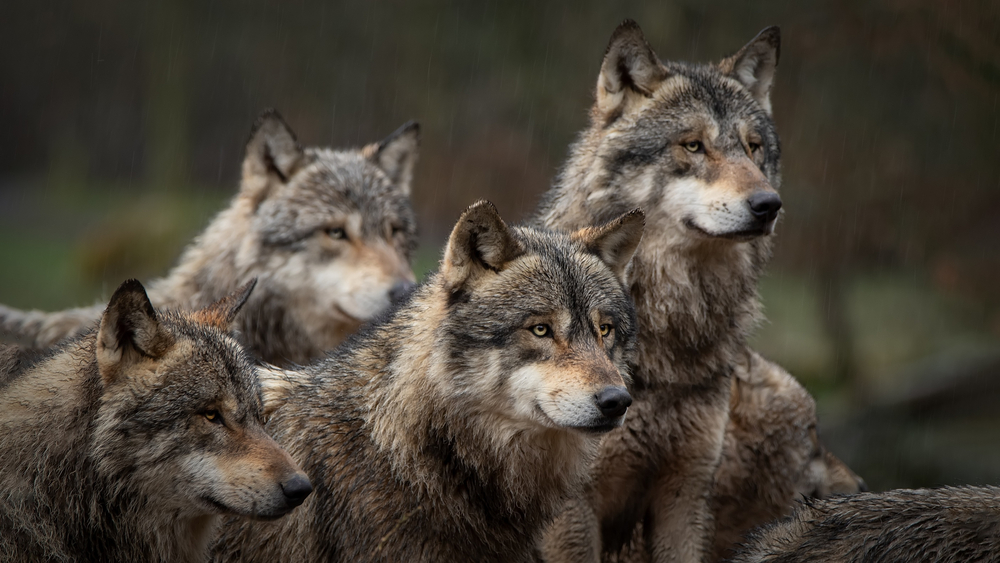
Wolves are masters of non-verbal communication. They use body language, facial expressions, and a range of vocalizations like howls and growls to convey their messages. If you were to chatter on like a human, you’d likely confuse them and disrupt the natural order. According to wildlife biologist Dr. L. David Mech, wolves rely heavily on subtle signals, which humans often overlook or misunderstand. To fit in, you’d need to learn to communicate more with your body and less with your mouth.
In a wolf pack, silence can be golden. Constant noise can be irritating and might even scare off prey, which is a big no-no in a world where hunting is a team effort. Wolves value efficiency and precision in their interactions, something that human chatter would lack. You’d have to train yourself to pick up on the pack’s quiet cues and respond accordingly. Otherwise, you might find yourself howling at the moon alone.
2. Hogging Resources

Sharing is caring, especially in a wolf pack. Resources like food are carefully distributed according to rank and need. If you were to hoard all the snacks for yourself, you’d quickly find yourself on the outs. Wolves are known for their cooperative hunting strategies, which require an understanding that everyone gets their fair share. In their world, taking more than your due share disrupts the balance and can lead to serious conflicts.
In a human environment, hoarding might just get you a few raised eyebrows, but in the wolf world, it could endanger the entire pack. Wolves often have to make do with limited resources, so fairness in distribution is key to survival. You’d need to get used to the idea of waiting your turn and trusting that you’ll get what you need when it’s your time. Failure to adapt to this communal mindset could leave you with an empty belly and no pack to call home.
3. Ignoring Hierarchy
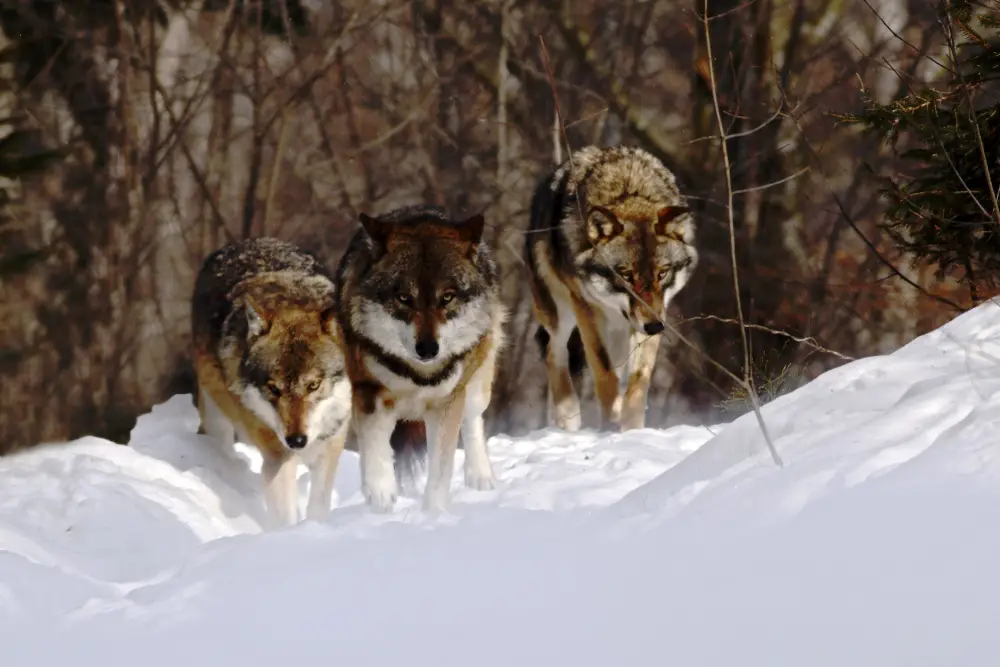
Hierarchy is a big deal in a wolf pack, and ignoring it would be a fast track to exile. Packs are structured with clear leaders, usually an alpha pair, and everyone knows their place. Disrespecting these roles wouldn’t just be a faux pas—it could destabilize the entire group. Biologist Rick McIntyre notes that wolves’ social structures are complex but crucial for maintaining order and cooperation. If you can’t respect the pecking order, you’ll probably be shown the door, or rather, the forest.
Humans often value equality and question authority, but in a wolf pack, challenging the alpha is a serious offense. You’d need to be okay with not being the top dog and show respect to those in charge. Wolves observe a strict code of conduct when it comes to interactions with superiors, and deviating from it can cause chaos. Learning to navigate this hierarchy would be essential, and your ability to adapt might determine whether you stick around or hit the road.
4. Over-Planning Everything

Wolves are creatures of instinct and adaptability, and they don’t spend much time planning every little detail. Humans love to plan, but in a wolf pack, overthinking could lead to missed opportunities. Wolves rely on their instincts to make quick decisions, especially when hunting or facing danger. Being overly analytical or weighing too many options could be seen as a weakness. The pack values spontaneity and the ability to act fast, both of which are hard to do if you’re bogged down in plans.
In the wild, things change rapidly, and wolves need to be ready to adapt at a moment’s notice. Overplanning could result in hesitation, which might cost the pack a meal or even their safety. You’d have to get comfortable with letting go of your need for control and learn to trust your gut. This might be a tough habit to break, but it’s essential for blending in with a pack that thrives on instinctual action.
5. Being A Lone Wolf
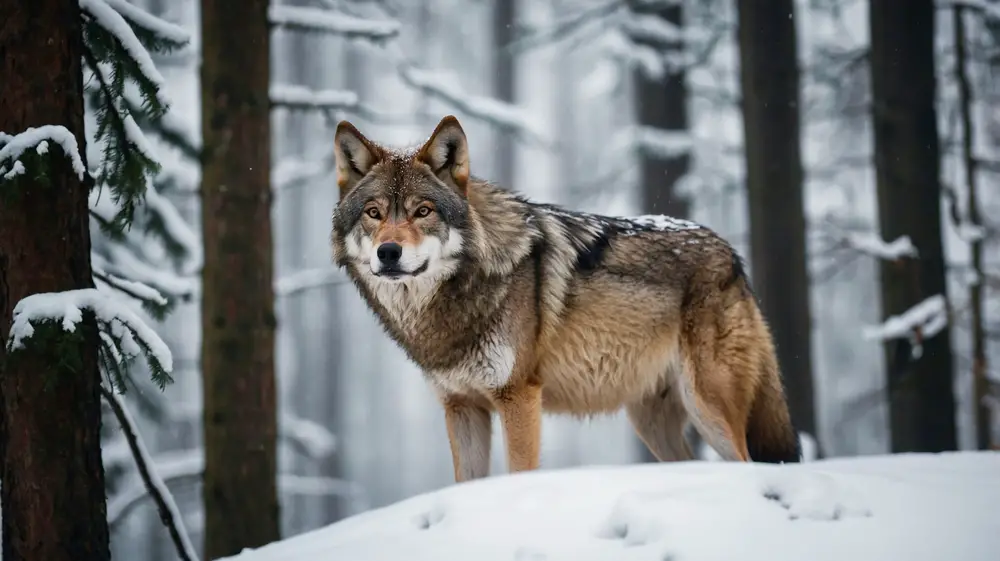
Despite the phrase “lone wolf,” actual wolves thrive in packs. Isolation isn’t just lonely; it’s detrimental to survival. Humans often prize independence, but wolves know the strength and safety found in numbers. According to wolf expert Dr. John Vucetich, a lone wolf lacks the support system crucial for finding food and protection. If you attempted to go off on your own, you’d quickly find out that the wild is an unfriendly place for a solo hunter.
Wolves rely on each other for more than just hunting. They play, groom, and look out for one another, creating strong social bonds. Being a solitary wolf means missing out on these critical interactions and the protection a pack provides. You’d need to adapt to the idea of living cooperatively and realize that sometimes, teamwork really does make the dream work. Otherwise, you might find yourself out in the cold, both literally and figuratively.
6. Holding Grudges

In a wolf pack, there’s no room for holding onto grudges. Conflicts happen, but they’re quickly resolved so the pack can move forward without tension. Humans tend to remember slights and let them fester, but wolves don’t have the luxury of time for long-standing vendettas. They need to function cohesively, and that means letting go of past grievances to focus on the present. If you held onto every little disagreement, you’d be too distracted to contribute effectively.
Wolves have a way of resolving disputes that prioritizes the pack’s well-being over individual ego. This makes sense in an environment where cooperation means survival. Grudges would only serve to create divides and weaken the pack’s unity. You’d have to learn to let bygones be bygones and focus on the bigger picture. Otherwise, you’d be the wolf with a bone to pick—alone.
7. Being Inconsistent
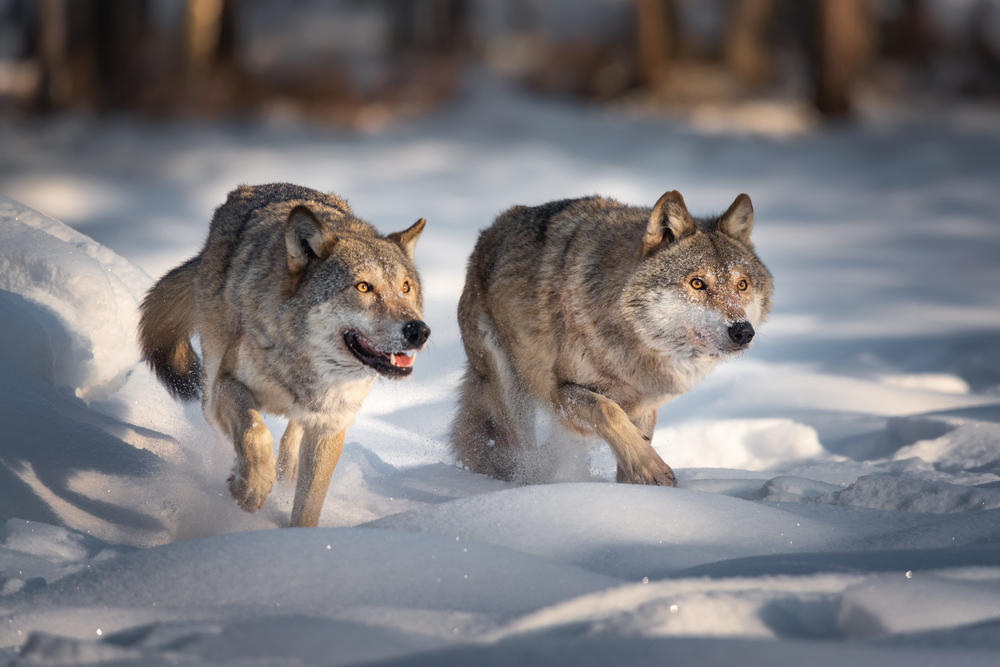
Consistency is key in a wolf pack, and erratic behavior can lead to mistrust and confusion. Wolves rely on predictability to coordinate hunts and maintain social bonds. If you were unpredictable, the pack would find it hard to rely on you for anything. Wildlife ecologist Dr. Cristina Eisenberg emphasizes that wolves count on each other’s reliability, particularly in high-stakes scenarios like hunting. Inconsistency would quickly lead to alienation, as the pack values stability above all.
Humans often embrace change and variety, but wolves need to know they can count on each member. Your ability to be dependable is crucial, as the pack’s survival often hinges on everyone doing their part. Being a wild card might be fun in human terms, but in a wolf pack, it’s a liability. To fit in, you’d need to be someone the pack can trust day in and day out, regardless of the circumstances.
8. Overthinking Social Dynamics

Wolves are straightforward in their social interactions, unlike humans, who sometimes overthink relationships. They observe and understand their pack members’ roles and personalities without a second thought. In a world where survival is the top priority, there’s little room for analyzing every interaction. If you spent your time overthinking or second-guessing your standing in the pack, you’d likely be left behind. Wolves acknowledge their emotions, but they don’t dwell on them.
Living in a pack means responding to social cues swiftly and efficiently. While humans may lose sleep over social faux pas or perceived slights, wolves move on quickly. You’d need to adapt to this fast-paced social environment and trust your instincts to navigate it. Otherwise, you might find yourself caught in a cycle of self-doubt that distances you from the pack. The key is in realizing that in the wolf world, actions speak louder than thoughts.
9. Being Too Picky
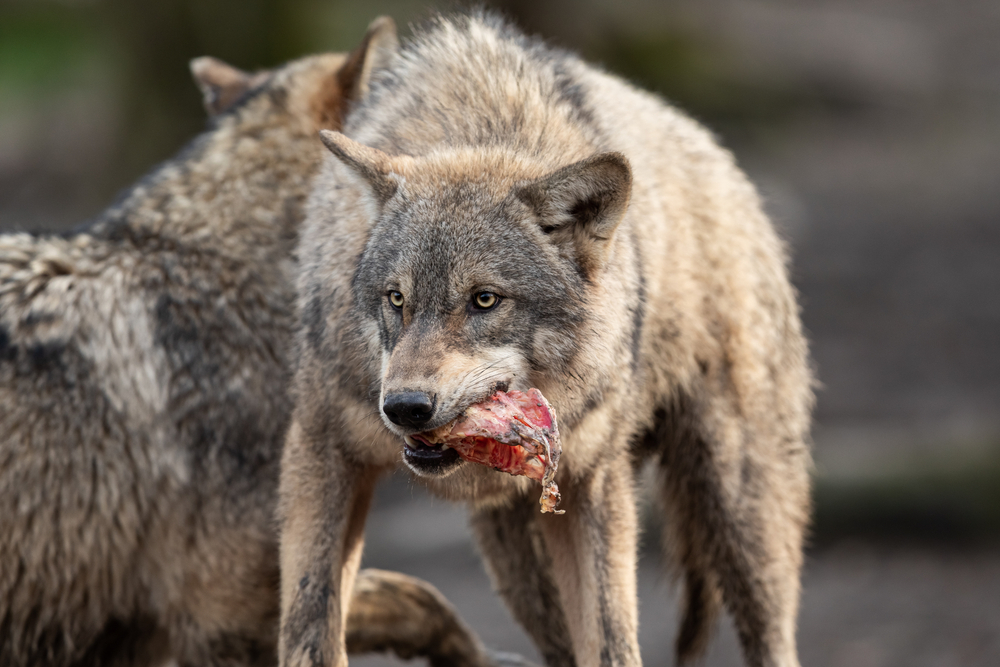
In the wild, being picky isn’t a luxury wolves can afford. They eat what they catch, whether it’s their favorite meal or not. If you were too choosy about your food, you’d likely go hungry. Wolves can’t afford to pass up a meal because it’s not to their liking, and you’d need to adopt a similar mindset. The pack eats together, and everyone consumes what’s available, focusing on necessity over preference.
Food scarcity is a real issue, which means adaptability is essential. Humans with dietary quirks or preferences might struggle to adapt to the wolves’ no-nonsense approach to eating. You’d have to let go of the idea of culinary delights and be open to whatever nature provides. Otherwise, your pickiness could lead to nutritional deficiencies and a one-way ticket out of the pack. Wolves thrive on practicality, and you’d need to do the same.
10. Failing To Learn From Mistakes

Wolves are quick learners, and they adapt based on their experiences. If you were in a wolf pack, repeating mistakes would mark you as unreliable. Wolves observe, learn, and change their behavior to improve their chances of success. Consistently failing to learn from past errors would disrupt pack activities and cooperation. You’d need to demonstrate that you can grow and adapt, or you’d risk your standing in the group.
In a pack, mistakes can cost more than just embarrassment—they can mean the difference between a successful hunt and going hungry. Wolves rely on each other to perform their roles effectively, and repeated errors would shake this trust. Learning from mistakes shows maturity and adaptability, traits highly valued by the pack. By showing you’re capable of growth, you’d prove yourself to be a worthy member of the group. Otherwise, you might be seen as dead weight.
11. Prioritizing Self Over Pack
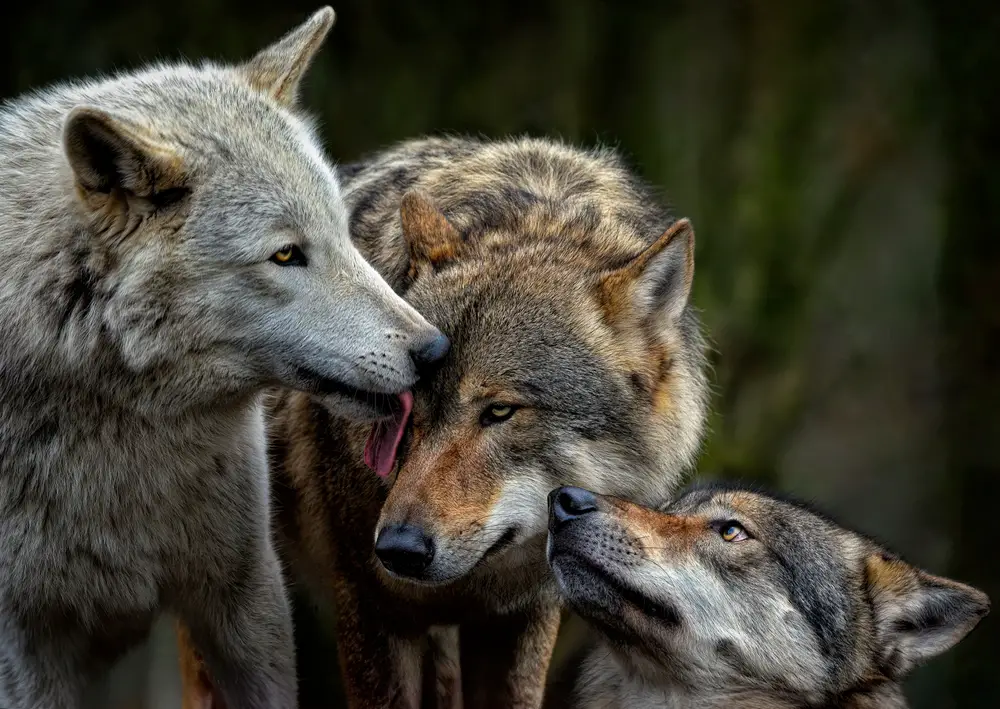
In a wolf pack, the needs of the many outweigh the needs of the few—or the one. Wolves think in terms of what benefits the group, even if it means sacrificing personal gain. If you put yourself first at every opportunity, you’d quickly fall out of favor. The pack relies on mutual support, and prioritizing your own interests would go against this principle. Success is measured by the group’s achievements, not just individual ones.
Humans often prioritize personal goals, but wolves see the bigger picture. They know that the survival of the pack secures their own survival as well. You’d need to adjust your mindset to think about what’s best for everyone rather than just yourself. Otherwise, you might find that your self-centered actions lead to isolation. Being part of the pack means being part of something greater than oneself.
12. Overcomplicating Simple Tasks

Wolves live by the motto: keep it simple. They focus on essentials and get things done without unnecessary fuss. If you were to overcomplicate tasks, you’d slow down the pack’s efficiency. Wolves have a knack for getting straight to the point, whether it’s hunting or resolving a dispute. Complexity for the sake of it only adds confusion and wastes valuable time.
Humans sometimes enjoy complexities and nuances, but in a wolf pack, simplicity reigns supreme. Wolves manage to thrive by sticking to what works best for the group. You’d need to streamline your actions and decisions to keep up with the pack’s pace. Otherwise, you’d be seen as the one causing delays and disruptions. Wolves value practicality, and you’d have to adapt to their straightforward approach.
13. Hesitating In Critical Moments
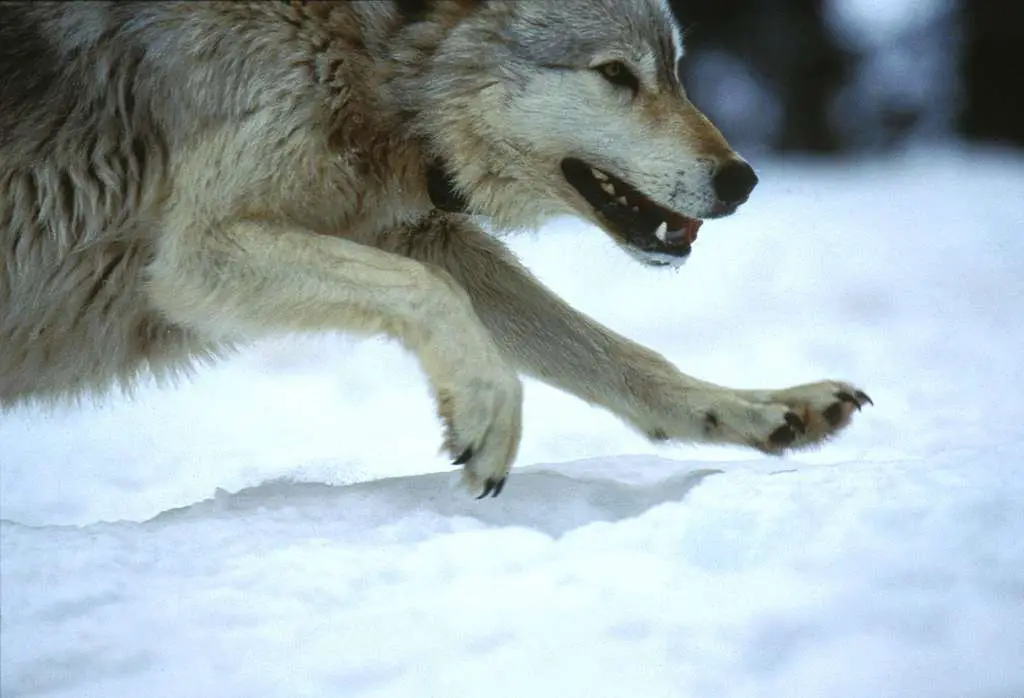
When a wolf needs to act, it does so without hesitation. In the wild, second-guessing can lead to missed opportunities or even danger. If you hesitated during a crucial moment, the pack might lose faith in your ability to contribute. Wolves trust their instincts and make snap decisions that are often critical for survival. You’d need to do the same, or you’d risk being seen as a weak link.
Humans often weigh options and deliberate, but wolves don’t have that luxury. In situations like hunting or evading predators, speed is essential. You’d have to develop the confidence to make quick decisions and stand by them. Otherwise, prolonged hesitation could compromise the pack’s success. Wolves act with conviction, and you’d need to mirror that decisiveness to fit in.
